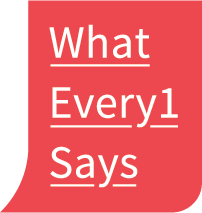This starter kit consists of an "area of focus" report (if it exists) prepared by a member of the WE1S C-Hackers team during academic year 2017-18, initial high-priority sources to collect suggested by the C-Hackers, and suggestions for initial research questions to address. For the session during Orientation Day 2 at our summer camp, each AM team should treat these starting-kit materials as initial suggestion, and then revise, fine-tune, or simplify them to create:
-
- An initial collection queue of sources (can be organized as "stage 1" for immediate collection, and future stages for next to be collected)
- An initial research question or two that the first set of collected materials can help answer--especially questions that can help guide future stages of collection (e.g., "Do we need to collect on the phrase 'liberal arts' in addition to 'humanities'?")
- LexisNexis search via "Nexis Uni" portal (login required: UCSB access | CSUN access)
- LexisNexis "Source Locator" (searchable directory of sources in LexisNexis; no login required for source locator)
- List of newspapers in LexisNexis (no login required)
- WE1S Nexis Uni Instructions
- WE1S spreadsheet of possible sources to collect (with metadata)
WE1S Workflow System Links
- Mirrormask 9998: Workflow Manager (Manifests and database)
- Mirrormask 9999: Workspace Manager System (WMS) -- Jupyter Notebooks
Shared Google Drive
Google form for Collection queuing (created July 17th as temporary tool)Team Number: 5
Mexico, Central, & South America
Members
- UCSB
- Rebecca Baker
- CSUN
- Kenia Rodriguez
- Vanessa Lopez
Area of Focus Report (prepared by WE1S C-Hackers Group in 2017-18)
- Area of Focus report (by Rebecca Baker): “Mexican News Sources”
- There are no pre-existing “area of focus” reports for Central or South America. One outcome of the summer’s work might be the generation of such a report(s) (using the template for area of focus reports)
Initial Collection Plan Suggestion (prepared by WE1S C-Hackers Group in 2017-18)
- Mexico (suggested by Rebecca Baker from C-Hackers Group in 2017-18) — (from Rebecca: “With the exception of LADB, I could find no database holding any of these papers in English (a few, such as El Universal, are archived in Spanish). Therefore, these will have to be manual searches”)
- Stage 1:
- SourceMex (LADB)
- Banderas News (Online)
- MexicoReporter.com (Online
- The News (Online)
- Stage 2:
- Mexico Star (Online)
- El Universal (English, Online)
- Gringo Gazette (.pdfs online)
- Mexico News Daily (Online)
- Riviera Maya News (Online)
- The Yucatan Times (Online)
- Outlier of Interest: LADB (“being an academically-prepared and translated news digest, is the outlier here. It is also the only archived source, and should probably be collected first”)
- “Ungettable” source of interest: “The News is actually printed in English, rather than just having an English component. I am sure it must be archived somewhere—it would be worth getting in contact with UNAM (Universidad Nacional Autonoma de Mexico) to see whether or not someone could help us locate this”
- Stage 1:
- South & Central Amercia (suggested by Rebecca Baker from C-Hackers Group in 2017-18) — (from Rebecca: “With the exception of LADB and Brazzil, I could find no database holding any of these papers in English (some are archived in Lexis Nexis or Proquest Spanish). Therefore, these will have to be manual searches using the online platforms”)
- Stage 1:
- Noticen (LADB)
- NotiSur (LADB)
- Granma (English)
- Bolivian Express Magazine
- Brazzil
- Stage 2:
- The Rio Times (Brazil, Online)
- The Voice of Guancaste (Costa Rica, Online)
- San Pedro Sun (Belize)
- Colombia Reports
- Bogota Post
- Havana Times
- The Bubble (Argentina, Online)
- The Argentimes
- Outlier of Interest: LADB (“I think LADB, being an academically-prepared and translated news digest, is the outlier here. It is also the only archived source, and should probably be collected first.“)
- “Ungettable” source of interest:
- The Buenos Aires Herald would be worth looking into more closely—I can’t find an archive, but it was THE major English language source (and highly political) for some time. It could be worth getting in contact with La Universidad de Buenos Aires to ask about this.
- Similarly, The Santiago Times is currently online-only, but ran as a print paper for a long time. The website doesn’t have anything older than 2016, though the old papers must be archived somewhere. Universidad de Santiago de Chile might help?
- Stage 1:
Initial Research Questions (suggestions)
- What is the nature of the audience of English language news sources in these countries?
- [Other questions TBD]


